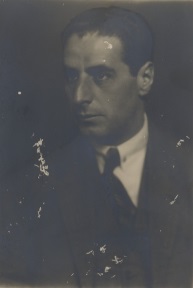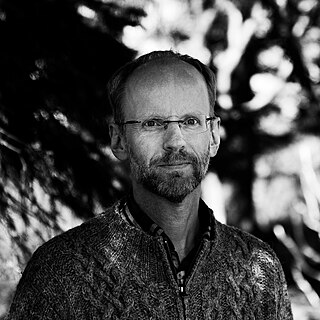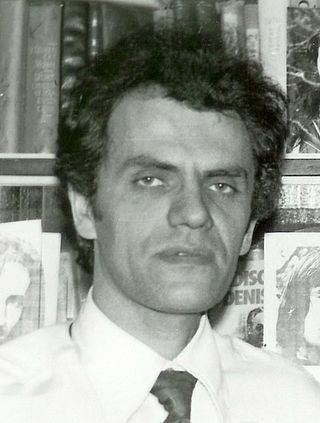Related Research Articles

Ernst Toch was an Austrian composer of European classical music and film scores, who from 1933 worked as an émigré in Paris, London and New York. He sought throughout his life to introduce new approaches to music.

Isang Yun, or Yun I-sang, was a Korean-born composer who made his later career in West Germany.
Gian Paolo Chiti is an Italian composer and pianist.

Haukur Tómasson is an Icelandic composer. He has a master's degree from the University of California, San Diego. He has also attended the Reykjavík College of Music, the Cologne University for Music and the Sweelinck Conservatory of Amsterdam.

Alexander Kuzmich Vustin, also Voustin or Wustin was a Russian composer. His works, including the opera The Devil in Love, were played and recorded internationally.

Beat Furrer is a Swiss-born Austrian composer and conductor. He has served as professor of composition at the University of Music and Performing Arts Graz since 1991. He was awarded the Ernst von Siemens Music Prize in 2018.
Liza Lim is an Australian composer. Lim writes concert music as well as music theatre and has collaborated with artists on installation and video projects. Her work reflects her interests in Asian ritual culture, the aesthetics of Aboriginal art and shows the influence of non-Western music performance practice.

Bernhard Lang is an Austrian composer, improviser and programmer of musical patches and applications. His work can be described as contemporary classical, with roots, however, in various genres such as 20th-century avant-garde, European classical music, jazz, free jazz, rock, punk, techno, EDM, electronica, electronic music, and computer-generated music. His works range from solo pieces and chamber music to large ensemble pieces and works for orchestra and musical theatre. Besides music for concert halls, Lang designs sound and music for theatre, dance, film and sound installations.
Rebecca Saunders is a London-born composer who lives and works freelance in Berlin. In a 2017 Classic Voice poll of the greatest works of art music since 2000, Saunders' compositions received the third highest total number of votes (30), surpassed only by the works of Georg Friedrich Haas (49) and Simon Steen-Andersen (35). In 2019, writers of The Guardian ranked Skin (2016) the 16th greatest work of art music since 2000, with Tom Service writing that "Saunders burrows into the interior world of the instruments, and inside the grain of Fraser's voice [...] and finds a revelatory world of heightened feeling."

Seyed Mehdi Hosseini Bami is a Persian composer of contemporary classical music.
Isidora Žebeljan was a Serbian composer and conductor. She was a professor of composition at the Belgrade Music Academy and a Fellow of the Serbian Academy of Sciences and Arts.

Gerhard Präsent is an Austrian composer, conductor and academic teacher.
Wang Ying is a Chinese-born composer based in Berlin.
Annesley Black is a Canadian composer based in Germany and Austria. Her works span from instrumental music to electronics and video performances, from orchestra and chamber music to theatre, solo performances and installations. She has appeared as a performer, improviser and sound-director.
Gwyn Pritchard is a British composer, ensemble and festival director, and teacher.
Péter Kőszeghy is a Hungarian composer and music eductor.
Juliane Klein is a German composer and publishing director.
Bernd Franke is a German composer.
References
- ↑ Music Information Centre Austria
- ↑ "London Ear Festival". Archived from the original on 2014-03-04. Retrieved 2013-05-04.
- ↑ Ensemble Phoenix Basel
- ↑ The work's premiere at the Bregenz Festival and by its first broadcasting by the Austrian ORF.
- ↑ Dissertation Moosbrugger
- ↑ "Orpheus Instituut". Archived from the original on 2013-06-16. Retrieved 2013-05-04.
- ↑ "Fest-Neue-Musik Anton Bruckner Privatuniversität Linz". Archived from the original on 2015-02-05. Retrieved 2013-05-04.
- ↑ Klangzeitort, Focus Intonation
- ↑ "Artistic Director Biography BTZM". Archived from the original on 2016-03-03. Retrieved 2013-05-04.
- ↑ German Study Centre in Venice